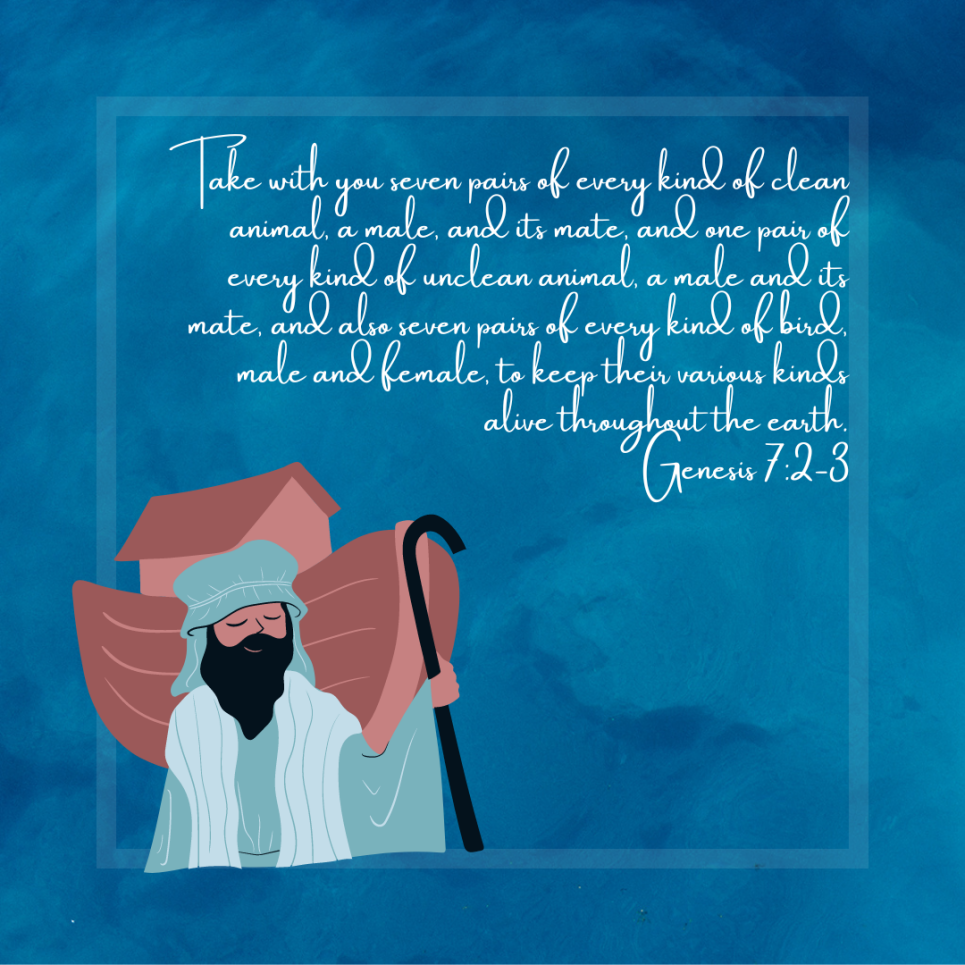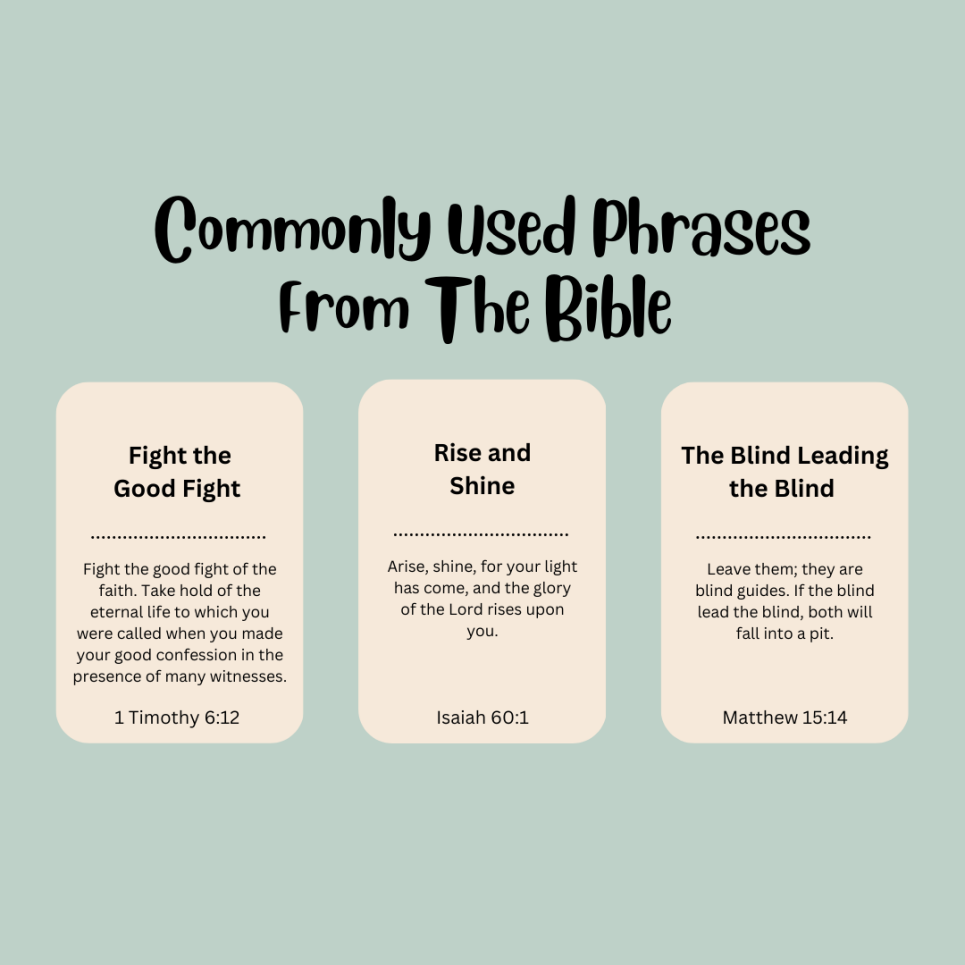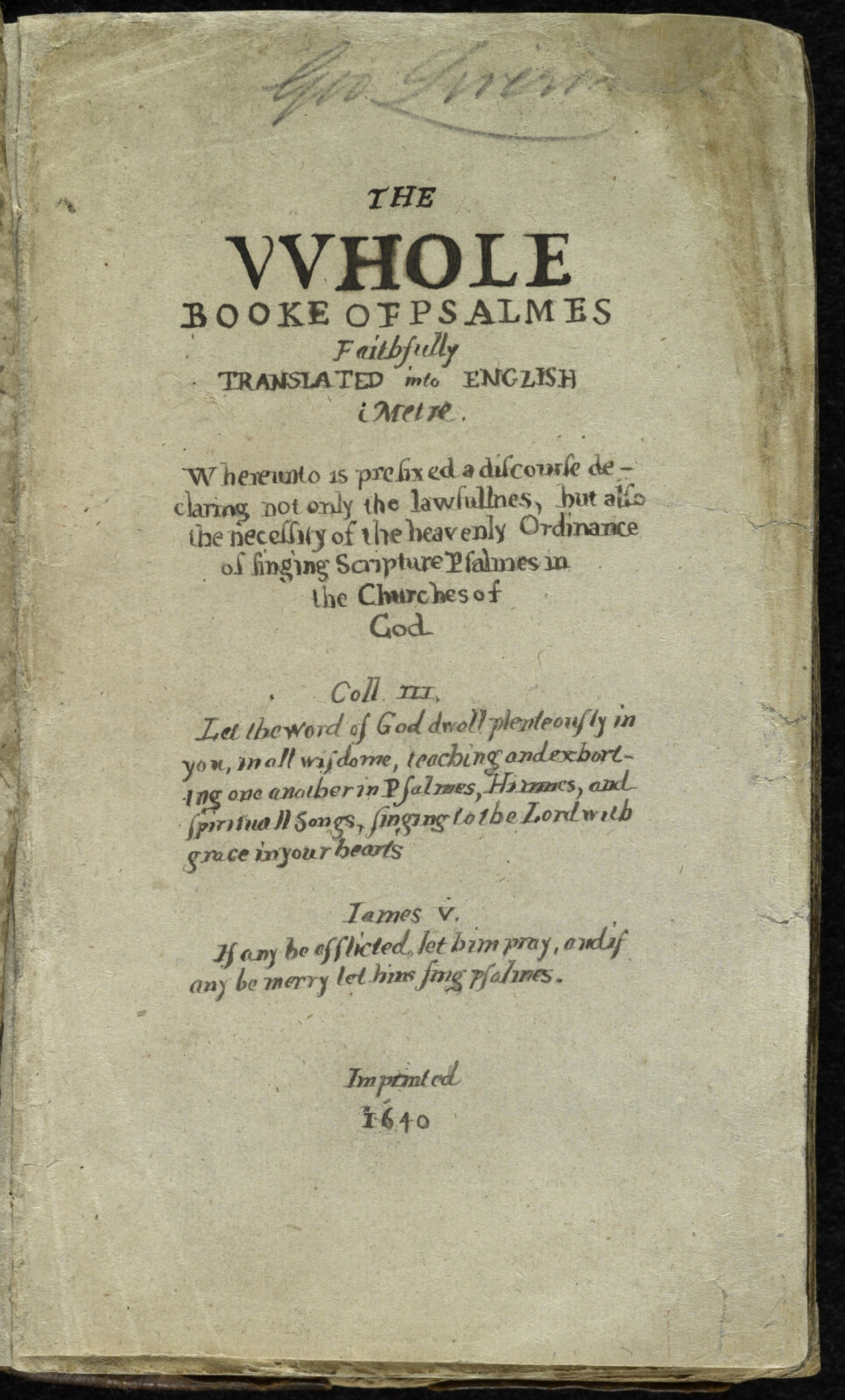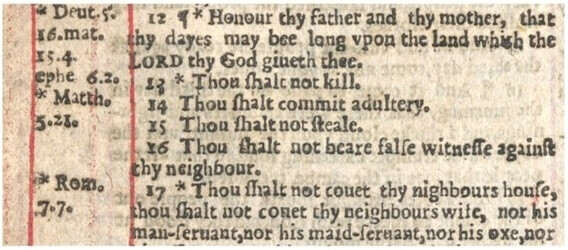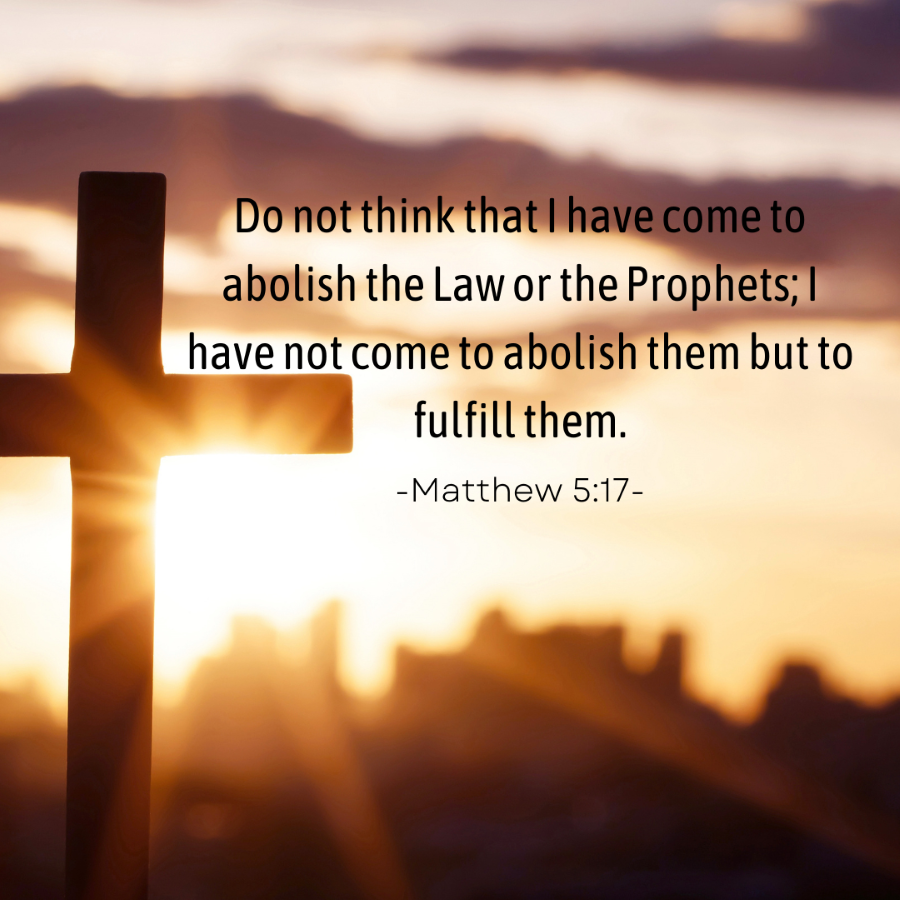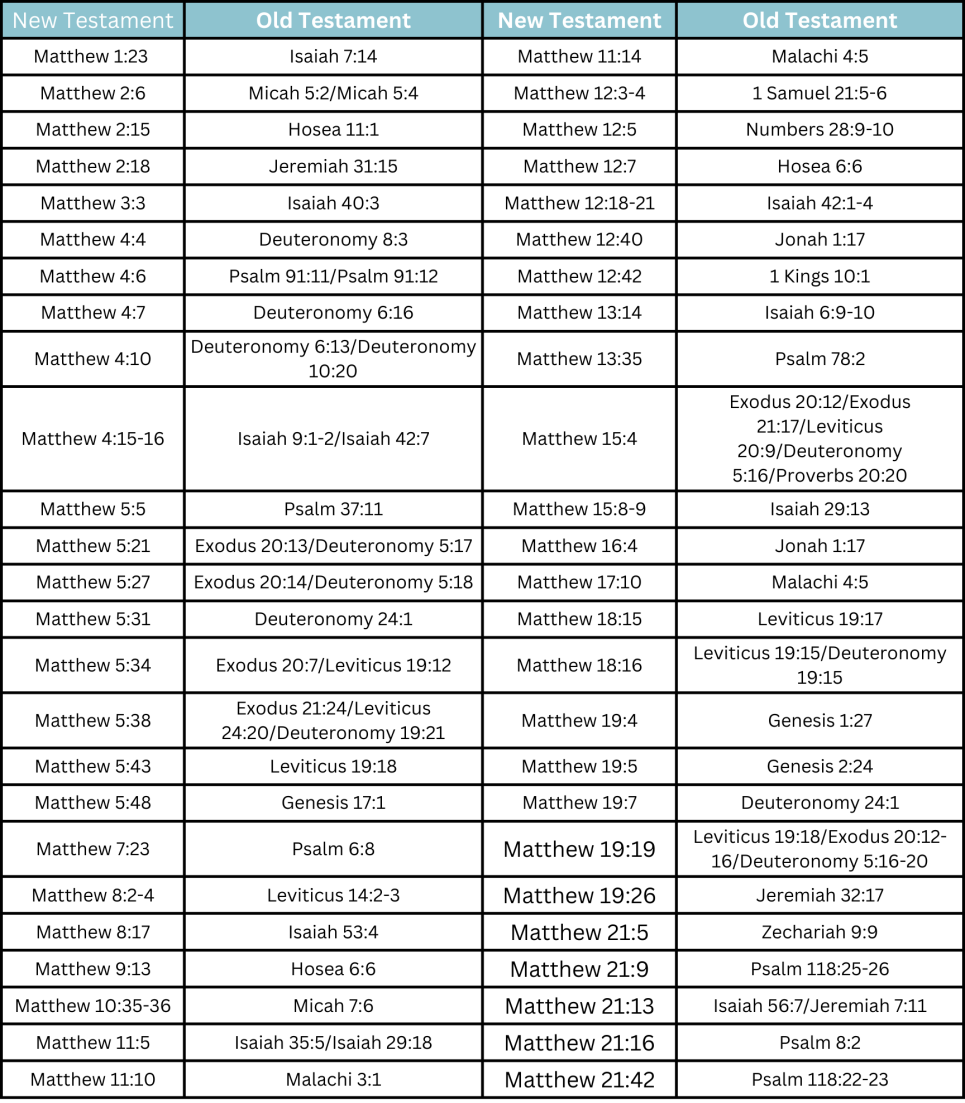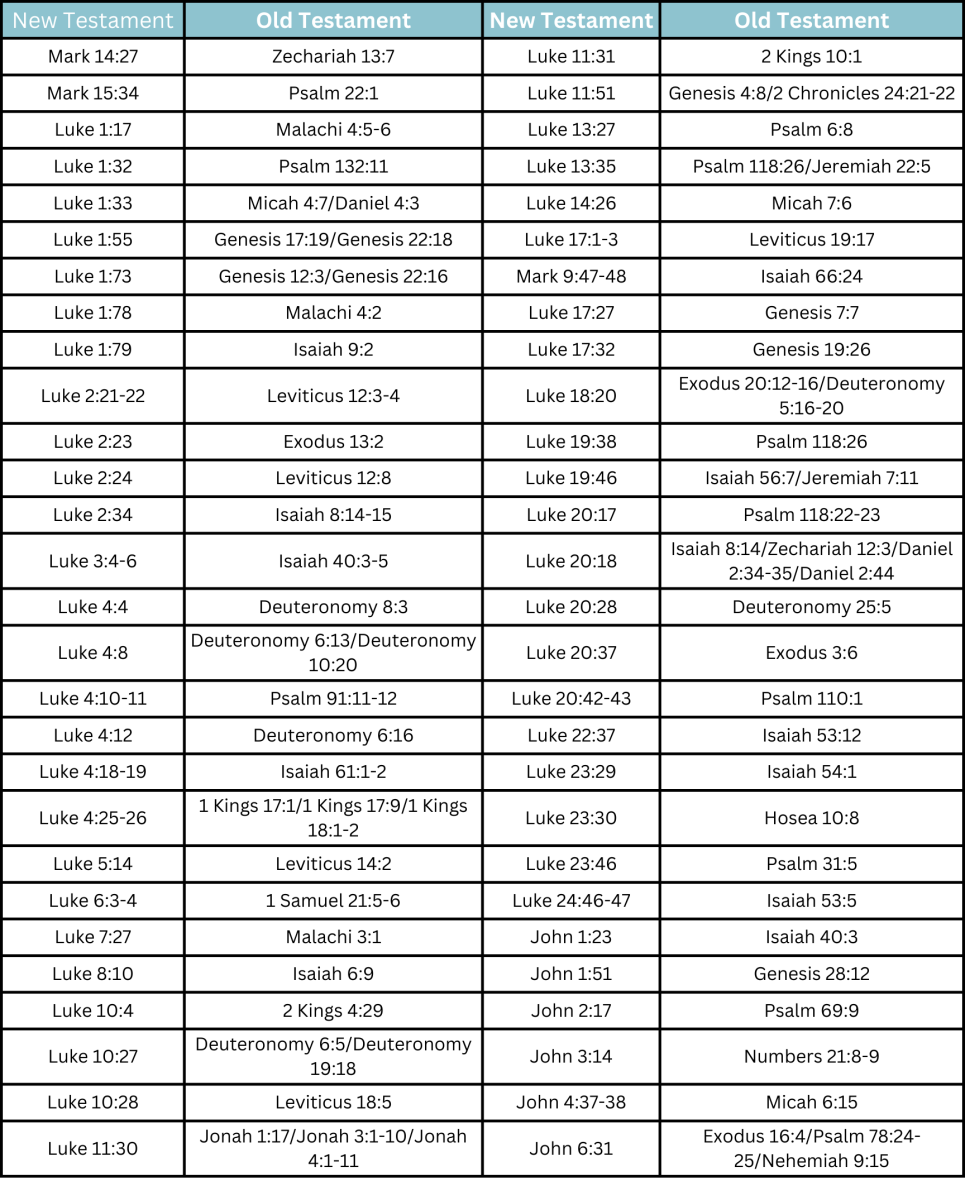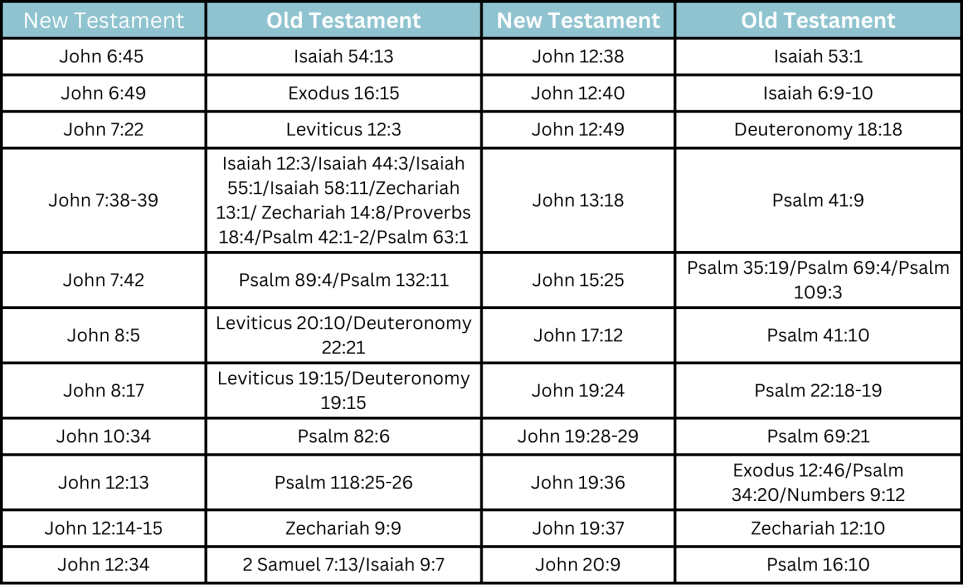Influential Mothers in the Bible

The mothers in the Bible held an instrumental role in reference to their children as well as their children’s relationship as well as their own relationship with God. Their stories hold a generous amount of insight that can be applied to motherhood and parenting today.
Hagar
Sarai (later known as Sarah), couldn’t give her husband, Abram (later known as Abraham) any children. She decided to grow a family through her slave, Hagar. When Hagar became pregnant, she grew to despise Sarai. This led to Sarai mistreating and rebuking Hagar. Hagar fled from the abuse. An angel found Hagar in the desert and told her that she was to go back to Sarai and submit to her. The angel promised that if she did, she would be rewarded with many descendants. Hagar faithfully returned and gave birth to a son, Ishmael.
Years later, Sarai (who now was known as Sarah) had a child. Once the child was weaned, a feast was held in his honor. Sarah noticed Ishmael was mocking her son, so she demanded that Hagar and the boy be sent away. Abram (now known as Abraham) was distressed because he didn’t want to send his son away. But God intervened and told Abraham to listen to Sarah, promising to make Ishmael a leader of a nation. Abraham listened and sent Hagar and his son off. They wandered the desert.
Ishmael became extremely dehydrated, so she placed him under a bush for shade and cried. She feared Ishmael would die. But God came to her and provided water so that he would live.
Then she went off and sat down about a bowshot away, for she thought, “I cannot watch the boy die.” And as she sat there, she began to sob. God heard the boy crying, and the angel of God called to Hagar from heaven and said to her, “What is the matter, Hagar? Do not be afraid; God has heard the boy crying as he lies there. Lift the boy up and take him by the hand, for I will make him into a great nation.” Then God opened her eyes and she saw a well of water. So she went and filled the skin with water and gave the boy a drink. Genesis 21:16-19
As her son grew, God stayed with him and protected him.
When she first fled, Hagar faithfully and obediently returned to Sarah after being instructed to do so. Later, after being rejected and sent away, Hagar bravely took on the role of a single mother and journeyed through the desert. While in the desert, she struggled to keep her son well. But God hadn’t forgotten her, He saw her and provided.
Sarah
Despite desperately wanting children, Sarah spent the majority of her life barren and unable to conceive. Regardless, when Sarah was 90, God spoke to Abraham and promised him a son.
I will bless her and will surely give you a son by her. I will bless her so that she will be the mother of nations; kings of peoples will come from her. Genesis 17:16
Because of Abraham and Sarah’s faithfulness, God, who is dependable and keeps to His word, fulfilled His promise to Abraham. Beyond her childbearing years, Sarah bore a son, Isaac, who would later become the father of Jacob.
Sarah said, “God has brought me laughter, and everyone who hears about this will laugh with me.” And she added, “Who would have said to Abraham that Sarah would nurse children? Yet I have borne him a son in his old age.” Genesis 21:6-7
Sarah’s story illustrates the importance of patients and emphasizes God’s timing is perfect and He delivers on His promises
Jochebed
After the Egyptians enslaved the Hebrews, Pharaoh became overwhelmed and angry about how quickly the Hebrews were multiplying. Because of this, he commanded the midwives to murder every male Hebrew baby born. However, the midwives did not listen to Pharaoh and allowed the baby boys to live. This pleased God, and He blessed the Hebrews with more babies. Angry, Pharaoh demanded that every Hebrew boy be thrown into the Nile River. A Hebrew woman, Jochebed, became pregnant. She birthed a boy and was fearful for her son's life. She tried to keep him and hid him away for three months. When she could no longer keep her son hidden, she placed her son in a basket and sent him down the Nile toward where Pharaoh’s daughter bathed.
But when she could hide him no longer, she got a papyrus basket for him and coated it with tar and pitch. Then she placed the child in it and put it among the reeds along the bank of the Nile. Exodus 2:3
Miriam, the baby’s older sister, kept an eye on the basket until it reached Pharaoh’s daughter. When Pharaoh’s daughter saw a Hebrew baby in the basket, her heart was touched and she kept the boy to raise and named him Moses. As Pharaoh’s daughter had not given birth, she was in need of a woman who could nurse the boy. Miriam offered to find a Hebrew woman who could nurse the baby. Pharaoh’s daughter agreed, and Miriam fetched her and Moses’ mother.
By faith, Moses’ parents hid him for three months after he was born, because they saw he was no ordinary child, and they were not afraid of the king’s edict. Hebrews 11:23
Jochebed embodies what it means to trust in God and His plan. She saved her son by handing him over to the very household that wanted to kill him. With confidence and faith, she trusted that God would protect her child.
Hannah
Hannah was devastated because she experienced infertility. Her husband's other wife, Peninnah, mocked Hannah for her inability to have children. Hannah dreamt of nothing more than giving her husband a child. So, she prayed. Hannah promised God that if He were to give her a son, she would give her son over to Him to serve.
In her deep anguish, Hannah prayed to the Lord, weeping bitterly. And she made a vow, saying, “Lord Almighty, if you will only look on your servant’s misery and remember me, and not forget your servant but give her a son, then I will give him to the Lord for all the days of his life, and no razor will ever be used on his head.” 1 Samuel 1:10-11
In time, Hannah became pregnant and gave birth to a son, Samuel.
So in the course of time, Hannah became pregnant and gave birth to a son. She named him Samuel, saying, “Because I asked the Lord for him.” 1 Samuel 1:20
At the time, it was expected to go to the temple and offer God a yearly sacrifice. Hannah told her husband that once their child was weaned, she planned to keep her promise to God by bringing Samuel to the temple so he could serve God for the rest of his days.
Hannah kept to her word, and once Samuel was weaned, she brought him to the temple.
“I prayed for this child, and the Lord has granted me what I asked of him. So now I give him to the Lord. For his whole life, he will be given over to the Lord.” And he worshiped the Lord there. 1 Samuel 1:27-28
God was so pleased with Hannah, that he blessed her with 5 more children.
Hannah demonstrates the significance of prayer and worship. She modeled great faith and obedience by entrusting Samuel to God.
Rebekah
Rebekah married Abraham and Sarah’s son, Isaac. Rebekah and Isaac tried to have children, but it wasn’t until Isaac pleaded with God that she became pregnant. During her pregnancy, Rebekah felt two distinct bodies forming in her womb. She asked God why this had happened to her. God responded, telling her that the twins represented two nations that will one day be separated.
The Lord said to her, “Two nations are in your womb, and two peoples from within you will be separated; one people will be stronger than the other, and the older will serve the younger.” Genesis 25:23
When the twins were born, Rebekah named the oldest Esau, and the youngest Jacob. Being the eldest, Esau was the rightful heir to their father’s inheritance. Isaac favored Esau whereas Rebekah favored Jacob.
One day when he returned from hunting, Esau asked Jacob if he could have some of the stew that Jacob had been making. Jacob agreed to give Esau some stew only if he promised to sell him his birthright. Ravenous, Esau agreed.
When Isaac was old his vision began to wither. He called to Esau and requested that he go out and hunt some wild game to prepare a meal for him. Isaac promised Esau that after the meal, he would give him a blessing before he passed. Esau obediently left to go hunting. Rebekah overheard and instructed Jacob to go collect two of their best goats so that she could prepare a meal for Isaac. She told Jacob that he would then deliver the meal to Isaac so he could receive the blessing instead of Esau. Jacob was hesitant.
Jacob said to Rebekah his mother, “But my brother Esau is a hairy man while I have smooth skin. What if my father touches me? I would appear to be tricking him and would bring down a curse on myself rather than a blessing.” His mother said to him, “My son, let the curse fall on me. Just do what I say; go and get them for me.” Genesis 27:11-13
To be sure that Isaac wouldn’t figure out that it was actually Jacob, Rebekah disguised him in Esau’s best clothes and covered his hands and neck with goatskins. Jacob then went to his father with the food and received his father's blessing. When Esau came back from hunting, he prepared a meal and went to Isaac, ready to receive his blessing, only to discover that Jacob had already been the one to receive it.
Isaac trembled violently and said, “Who was it, then, that hunted game and brought it to me? I ate it just before you came and I blessed him—and indeed he will be blessed!” When Esau heard his father’s words, he burst out with a loud and bitter cry and said to his father, “Bless me—me too, my father!” But he said, “Your brother came deceitfully and took your blessing.” Esau said, “Isn’t he rightly named Jacob? This is the second time he has taken advantage of me: He took my birthright, and now he’s taken my blessing!” Then he asked, “Haven’t you reserved any blessing for me?” Isaac answered Esau, “I have made him lord over you and have made all his relatives his servants, and I have sustained him with grain and new wine. So what can I possibly do for you, my son?” Genesis 27:33-37
Esau was unable to forgive Jacob and decided that once their father passed, he would kill his brother. Fearful for Jacob’s life, Rebekah sent him away.
Even though Rebekah was deceitful and hatched the plan that caused spite and anguish in her family, God’s plan was able to be carried out, as he had told Rebekah, “two nations are in your womb, and two peoples from within you will be separated; one people will be stronger than the other, and the older will serve the younger.” Regardless of her interference, God made certain that the oldest son ended up serving the younger.
When it comes down to it, Rebekah only wanted what she saw best for Jacob. Sure, she went about it in a roundabout way, but she felt like it was the only way to get her son what he deserved. No matter how misguided, Rebekah was a mother trying to do all that she could for the sake of her son. Rebekah’s story highlights that humans are imperfect and make mistakes, yet, despite our flaws and imperfections, God and His plan prevail.
Leah and Rachel
Jacob left home and stayed at his uncle, Laban’s, house. Jacob ended up falling in love with his uncle’s daughter, Rachel. He asked his uncle if he could marry Rachel, and his uncle made a deal that he could marry her after working for him for 7 years. When the years were complete, Jacob requested Rachel’s hand in marriage. Laban agreed, and they held a feast in celebration. That night, Jacob went to bed with who he thought was Rachel. When morning came, Jacob realized that it was not Rachel in the bed with him, rather, it was her sister Leah. Angry, Jacob confronted his uncle and asked why he had been deceived. Laban explained that he needed to have his oldest daughter married first. Laban offered marriage to Rachel for another 7 years of work.
Laban replied, “It is not our custom here to give the younger daughter in marriage before the older one. Finish this daughter’s bridal week; then we will give you the younger one also, in return for another seven years of work.” Genesis 29:26-27
Jacob and Rachel married, and it was very obvious to Leah that her husband loved her sister so much more than her. God took pity on her, and Leah soon fell pregnant.
When the Lord saw that Leah was not loved, he enabled her to conceive, but Rachel remained childless. Leah became pregnant and gave birth to a son. She named him Reuben, for she said, “It is because the Lord has seen my misery. Surely my husband will love me now.” Genesis 29:31-32
With the hope of earning Jacob’s love, Leah continued to have children. After she gave birth to 4 boys, she couldn’t have any more children.
Rachel was outraged that she couldn’t give Jacob children of her own. In a fit of anger, she yelled at Jacob. Jacob pointed out that God was the only one who could make this happen.
When Rachel saw that she was not bearing Jacob any children, she became jealous of her sister. So she said to Jacob, “Give me children, or I’ll die!” Jacob became angry with her and said, “Am I in the place of God, who has kept you from having children?” Genesis 30:1-2
But Rachel thought of another way. She gave her servant over to Jacob with the hope that they could build a family together through her. Rachel’s servant convinced two sons, and Rachel was excited to finally be a mother. But after the second son, Rachel remarked about finally beating her sister. Leah had her servant marry Jacob, too. Her servant provided Leah and Jacob with two more sons.
One day during the harvest, Leah and Jacob's oldest was in the field and found some mandrake plants. Rachel asked Leah if she could have some of Reuban’s mandrakes as Mandrakes were thought to cure infertility. Leah was openly angry and accused Rachel of taking away her husband and now trying to take away her son's mandrakes. In a lightbulb moment, Rachel proposed that in return for the mandrakes, Leah would be able to sleep with Jacob that night. Leah agreed. After that day, Leah became pregnant with two more sons and a daughter.
And Rachel was finally able to conceive. She gave birth to Joseph. But after Joseph was born, she asked God to provide her with another son.
At this point, Jacob asked Laban for his permission to go back home with his wives and children. Laban did not want Jacob to leave, and soon Laban’s sons accused Jacob of stealing from their father. Laban's attitude toward Jacob changed. God instructed Jacob to take his family back to his homelands. Jacob and his family fled. Rachel felt slighted by her father for not receiving any of her inheritance, so unbeknownst to her father and Jacob, Rachel had stolen her father's household gods. Laban was furious that his gods were missing and that Jacob had run away without saying goodbye to his daughters and grandchildren. One wild goose chase later, Laban caught up to Jacob and his family. Jacob promised Laban that nobody had taken his gods. Jacob went as far as to curse the person who took the gods with death. Rachel hid the gods away while Laban searched Leah and her servant. When he searched Rachel, he was unable to find his gods there. Satisfied that nobody in his family had taken his household gods, Laban and Jacob made up and the family parted ways. While traveling, Rachel became pregnant with another son, Benjamin. However, she died during childbirth. She was buried along the road. In the end, Leah was honored and buried beside Jacob, Isaac, Rachel, Abraham, and Sarah. Together, Leah and Rachel’s sons established the 12 tribes of Israel.
Despite longing for love from her husband, God stepped in and blessed Leah with many children to fill the void of loneliness. She named her 4th son Judah (yes… the very Judah in Christ’s lineage), the fifth Issachar, and the sixth Zebulun. In Hebrew, Judah means praise, Issachar means reward, and Zebulun means honor. Leah acknowledged that her children were treasures from God, and she was filled with peace.
Leah and Rachel both struggled with jealousy and insecurity. Leah didn’t feel like she was enough because she knew Jacob loved Rachel more. Just the same, Rachel felt less than because she was unable to provide children for her husband. Their story attests to the substantial impact jealousy and insecurity have. It is so important to be grateful for what you are given, know that even if you don’t know that you’re enough, God knows that you’re enough, and not compare yourself to others.
Samson's Mother
Samson’s mother was visited by an angel of God. The angel told her that even though she was barren, she would become pregnant. The angel continued to tell her that the baby would spend his life dedicated to God.
You will become pregnant and have a son whose head is never to be touched by a razor because the boy is to be a Nazirite, dedicated to God from the womb. He will take the lead in delivering Israel from the hands of the Philistines. Judges 13:5
Because the baby was to be a Nazirite from the time of conception, she was instructed to not drink wine or any other fermented drink, and steer clear of unclean foods. She dutifully accepted.
She found her husband, Manoah, and told him what the angel had said. Manoah prayed, asking God to have the messenger return so that he could speak to the man and ensure that he knew how to raise his son right. The angel returned to the woman while she was working in the field. She excitedly fetched her husband and told him that the man was there to speak with them. The angel reiterated what he had said days before and Manoah, not realizing that he was speaking to an angel, offered him to stay for dinner. The angel declined, instead suggesting that they prepare a burnt offering for God.
Once the offering was prepared, they lit it on fire and the angel ascended in the flames. Manoah and his wife fell to the ground and covered their faces.
“We are doomed to die!” he said to his wife. “We have seen God!” But his wife answered, “If the Lord had meant to kill us, he would not have accepted a burnt offering and grain offering from our hands, nor shown us all these things or now told us this.” Judges 13:22-23
Manoah and his wife had their baby and named him Samson. As he grew, God continuously blessed him.
Samson's mother shows us the importance of being sensible, practical, and dutifully following through with your responsibilities. She readily shouldered her obligation of motherhood and devoted herself to living the way necessary so that she could provide Samson with the opportunity God had for him.
Naomi
Because of a famine in Bethlehem, Naomi and her family had to relocate. Her husband settled on Moab as the place to start their new life. Unfortunately, while settling down, her husband and two sons passed away, leaving her behind with her two daughter-in-laws in a pagan land.
Naomi caught wind that God had blessed her people back home with food. She decided that she would go back home, and urged her daughter-in-laws to go back to their mothers' houses so they could once again find love and start a family. But her daughter-in-law Ruth refused to leave her side. So Naomi and Ruth made their way to Bethlehem.
In Bethlehem, Ruth went and worked the fields so she could earn money for her and Naomi to live. When she returned from work, Naomi discovered that Ruth had been working in the field of a relative of her deceased husband, Boaz. Naomi knew it wasn’t fair for Ruth to not live her own life, so she decided to play matchmaker and devised a plan to get Ruth and Boaz together. Naomi instructed Ruth to meet Boaz on the threshing floor and lay with him. She informed Ruth that Boaz was the family’s guardian-redeemer.
Ruth did as she was told. Boaz was on board to take Ruth as his wife, but there was one problem. He technically wasn’t the family guardian-redeemer. So Boaz met with the council and the guardian-redeemer first in line declined the offer to have Ruth as his wife. So it was settled that Boaz could take Ruth as his wife.
Then the elders and all the people at the gate said, “We are witnesses. May the Lord make the woman who is coming into your home like Rachel and Leah, who together built up the family of Israel. May you have standing in Ephrathah and be famous in Bethlehem. Ruth 4:11
Ruth and Boaz married and bore a child, Obed, who eventually became David’s grandfather.
So Boaz took Ruth and she became his wife. When he made love to her, the Lord enabled her to conceive, and she gave birth to a son. The women said to Naomi: “Praise be to the Lord, who this day has not left you without a guardian-redeemer. May he become famous throughout Israel! He will renew your life and sustain you in your old age. For your daughter-in-law, who loves you and who is better to you than seven sons, has given him birth.” Ruth 4:13-15
Even though Naomi had been full of grief over the loss of her husband and sons, God provided and blessed Naomi for taking care of her daughter-in-law.
Naomi exemplifies what it means to have a big heart. Even though Ruth wasn’t her biological daughter, Naomi opened her heart and loved Ruth from the bottom of her heart. She provided her daughter with the life she deserved and made sure that she would be well taken care of.
Elizabeth
Elizabeth was another woman in the Bible who experienced infertility. Elizabeth and her husband, Zechariah, were both very righteous and followed the laws God had set in place. Elizabeth was far beyond childbearing age, but she and Zechariah did not let childlessness embitter them.
One day Zechariah was working in the temple and the angel Gabriel visited him. Gabriel told him that God was going to bless him and Elizabeth with a child.
But the angel said to him: “Do not be afraid, Zechariah; your prayer has been heard. Your wife Elizabeth will bear you a son, and you are to call him John. He will be a joy and delight to you, and many will rejoice because of his birth, for he will be great in the sight of the Lord. He is never to take wine or other fermented drink, and he will be filled with the Holy Spirit even before he is born. He will bring back many of the people of Israel to the Lord their God. And he will go on before the Lord, in the spirit and power of Elijah, to turn the hearts of the parents to their children and the disobedient to the wisdom of the righteous—to make ready a people prepared for the Lord.” Luke 1:13-17
Zechariah questioned the angel, insisting that he and Elizabeth were too old to have children. Because of his doubt, Gabriel told Zechariah that he will be unable to speak until the baby’s birth. Elizabeth became pregnant and hid away for 5 months. She was grateful to God for the opportunity to be a mother. During the 6th month of her pregnancy, Mary learned that she was pregnant with Jesus. She went to Elizabeth. Upon seeing Mary, she knew that Mary carried the Savior in her womb.
When Elizabeth heard Mary’s greeting, the baby leaped in her womb, and Elizabeth was filled with the Holy Spirit. In a loud voice she exclaimed: “Blessed are you among women, and blessed is the child you will bear! But why am I so favored, that the mother of my Lord should come to me? As soon as the sound of your greeting reached my ears, the baby in my womb leaped for joy. Blessed is she who has believed that the Lord would fulfill his promises to her!” Luke 1:41-45
Instead of doubting Mary, Elizabeth validated her and supported her. Mary stayed with Elizabeth for 3 months.
Elizabeth gave birth to her son, and on the day of his circumcision, they needed to give the baby a name. Per tradition, Elizabeth wanted to name the baby after her husband. But Zechariah’s mother spoke up and said his name was to be John. Everyone turned to Zechariah and asked him what he would like the baby to be named. He was handed a tablet to write on and confirmed that the boy was to be named John. After this, Zechariah was able to speak again and he praised God.
He asked for a writing tablet, and to everyone’s astonishment he wrote, “His name is John.” Immediately his mouth was opened and his tongue set free, and he began to speak, praising God. Luke 1:63-64
Throughout years of infertility, Elizabeth’s faith never wavered. God saw this and blessed her with the good fortune of being the mother to John the Baptist.
Elizabeth signifies the importance of continued worship. Even though she had been disappointed about not having a child, she didn’t let it prevent her from faithfully growing her relationship with God. Elizabeth also encompasses what it means to be a kind and supportive friend. Mary was young, unwed, and claiming to be a virgin. Most others would have ostracized her, but Elizabeth didn’t. Instead, she affirmed Mary and opened her home up to her.
Mary
Ending with the most renowned mother in the Bible, Mary. The angel Gabriel appeared to Mary, a young girl engaged to a man named Joseph. Gabriel gave her an honorable greeting, saying that she was highly favored by God. Gabriel told Mary that she will conceive and give birth to the Son of God. Rightly confused, Mary asked the angel how this would be possible, as she was a virgin. Gabriel told her that the Holy Spirit will come to her and God would make it possible. Mary knew what the angel said was true.
“I am the Lord’s servant,” Mary answered. “May your word to me be fulfilled.” Then the angel left her. Luke 1:38
The birth of Jesus was surrounded by less-than-ideal circumstances. But this didn’t bother Mary. She humbly accepted the situation as it was. As word spread that the Savior had been born, people excitedly spoke about the news. Even though she was proud of her son, she was never boastful, opting to keep her joy to herself.
But Mary treasured up all these things and pondered them in her heart. Luke 2:19
King Herod heard that the Messiah had been born, so he ordered that all the boys under 2 years of age in the vicinity of Bethlehem were to be killed. An angel appeared to Joseph and told him to take his family to Egypt until the death of Herod. Mary and Joseph fled to keep their son safe. Once Herod had died, they returned to Israel and settled in Nazareth.
Mary knew what her Son was called to be. Throughout His life, Mary supported Him. As a boy, Jesus taught and preached in the temple. Mary was by His side when Jesus was hanging on the cross. She followed Him, cared for Him, and had faith in Him.
Some women were watching from a distance. Among them were Mary Magdalene, Mary the mother of James the younger and of Joseph, and Salome. In Galilee these women had followed him and cared for his needs. Many other women who had come up with him to Jerusalem were also there. Mark 15:40-41
Through all of the grief Mary undoubtedly felt, Mary never questioned what needed to be done needed to be done. She knew her Son needed to be sacrificed for mankind. But she was never angry with God for the suffering that she and her Son had to endure. Mary chose to cling to her faith to get through it. Jesus saw this, and he loved his mother dearly. While on the cross, Jesus provided and blessed His mother and His disciple by gifting them to one another.
Near the cross of Jesus stood his mother, his mother’s sister, Mary the wife of Clopas, and Mary Magdalene. When Jesus saw his mother there, and the disciple whom he loved standing nearby, he said to her, “Woman, here is your son,” and to the disciple, “Here is your mother.” From that time on, this disciple took her into his home. John 19:25-27
After His death, Mary faithfully continued to stand by her son.
They all joined together constantly in prayer, along with the women and Mary the mother of Jesus, and with his brothers. Acts 1:14
Mary adored and stood by her Son. When the angel Gabriel first appeared to her, Mary welcomed his message, no matter how strange. She accepted things as they were, even if she didn’t understand. Mary chose to be humble and wholeheartedly trust God and his plan. Mary teaches us to be a willing vessel in God's plan. By taking on the role of Mother to the Son of God, Mary experienced a sizable amount of sacrifice, but she leaned on God to work through the pain.
Mothers’, You Are So Blessed
The mothers in the Bible teach us extremely valuable lessons. They signify great faith and highlight the vitality of humility and trusting God.
A mother’s role is to love, support, protect, guide, and teach. Sometimes, this isn’t an easy task. Especially in the age of the internet, where other moms post picturesque photos of their perfectly clean homes, their always smiling children, and the most fun and adventurous family vacations, you get the point. These moms appear to have everything put together. But the reality is, they have struggles, too. They make mistakes, their children aren’t always smiling 24/7, and they face trials that they just don’t post about. Don’t compare yourself to them. Don’t think that you are not enough. You are.
When motherhood, work, or life feels like it is too much to bear, God sees you, He knows you and what you are going through. Turn to Him, lean on Him, and submit yourself to Him.

- Torrance Church of Christ


